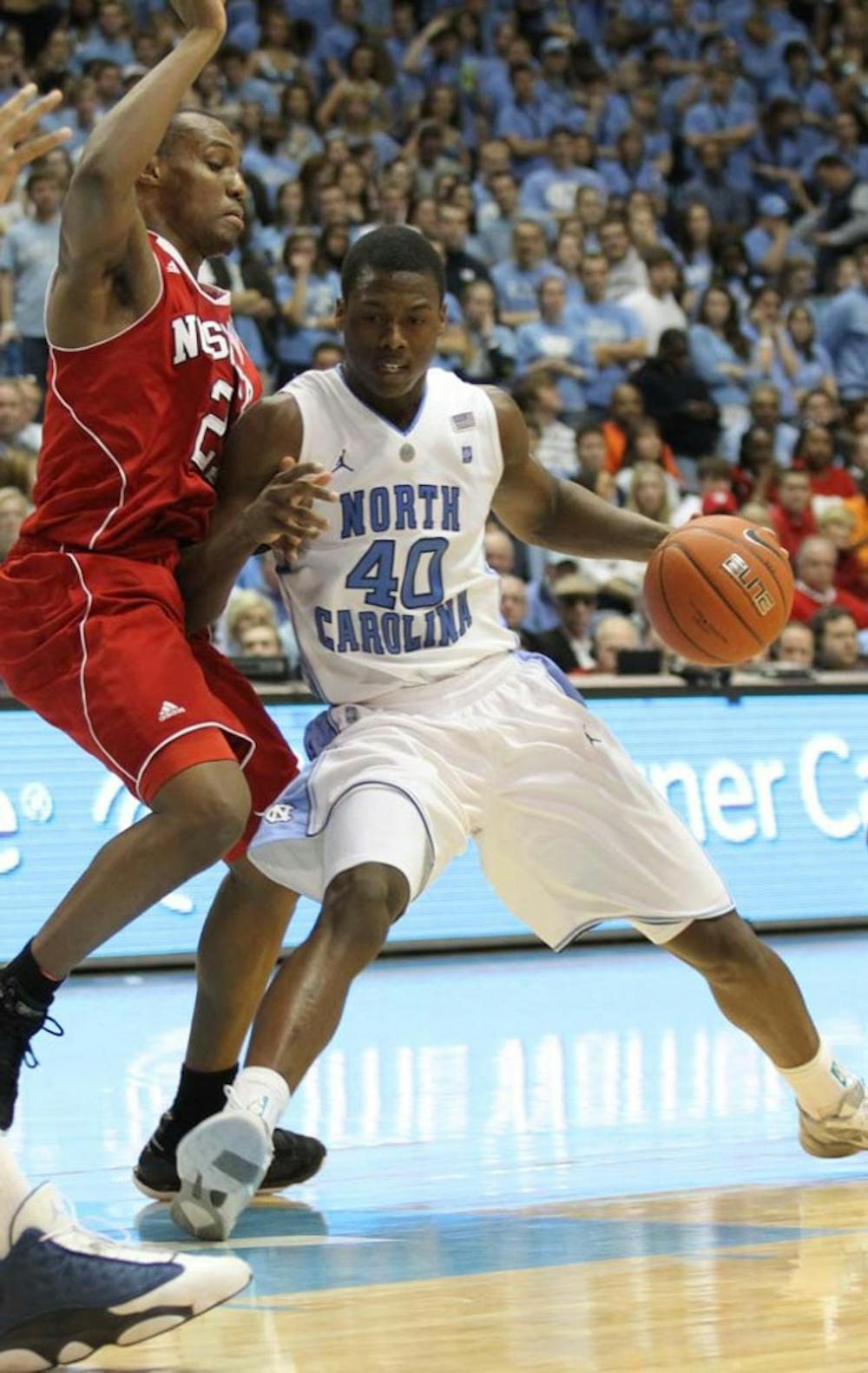When North Carolina lost to Boston College 71-67 last season, it was the Tar Heels’ ninth loss in 11 games.
This year, UNC travels to Chestnut Hill, Mass., with eight wins in its last nine games. With a set rotation and a mostly healthy roster, the Tar Heels are better equipped to handle the Eagles than a year ago.
“Some guys were trying to play hurt and we didn’t play well and I didn’t coach well,” UNC coach Roy Williams said Monday in an ACC teleconference. “It’s a different year right now. The kids are a team. And as I said in the preseason, we’d get better and better as we go along and I still believe that.”
UNC (15-5, 5-1 ACC) has rolled through conference play thus far with three straight wins including Saturday’s 20-point romp against N.C. State.
In those games, Williams has seen improvement in his team’s aggressiveness, especially in freshman Harrison Barnes. Against the Wolfpack, the forward scored 14 of his 25 points inside the arc, grabbed three offensive rebounds, and hustled for several loose balls.
“Since the conference season started, I’ve been pleased with our toughness with the exception of one half,” Williams said. “We are getting more active and we are becoming more aggressive.
“Saturday was the most aggressive (Barnes) had been in any game. I think we are getting better — they are nowhere where I want them to be by any means — but we are getting better at that.”
Barnes’ improvement on both ends of the floor is much needed while Justin Watts continues to recover from a foot injury sustained against Clemson. Watts, a junior forward, typically comes off the bench when UNC’s starting 4-man John Henson gets into foul trouble or needs substituting in late-game situations.
Watts, a full six inches shorter than Henson, offers agility and quickness on the perimeter, which Williams said his team will need against Boston College. The Eagles are the ACC’s second-best field goal shooting team, aided by a .375 3-point percentage.




